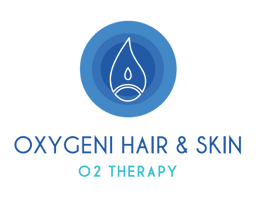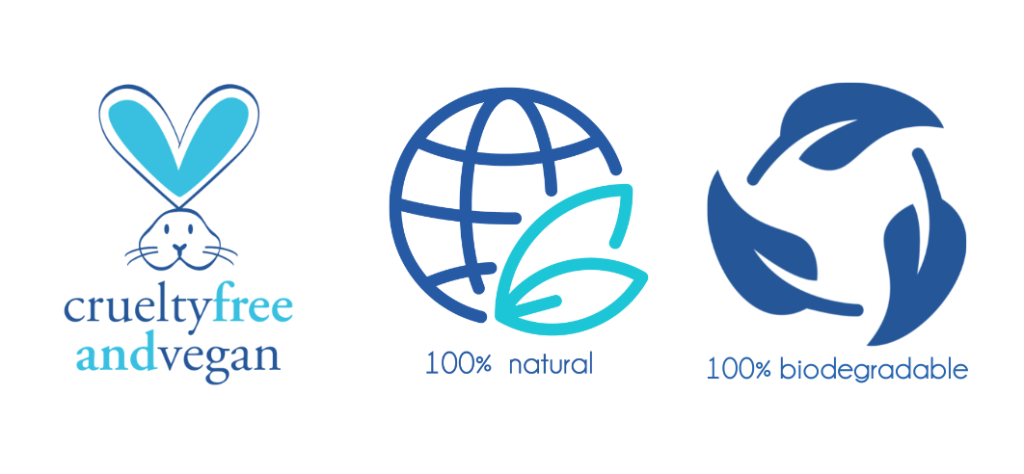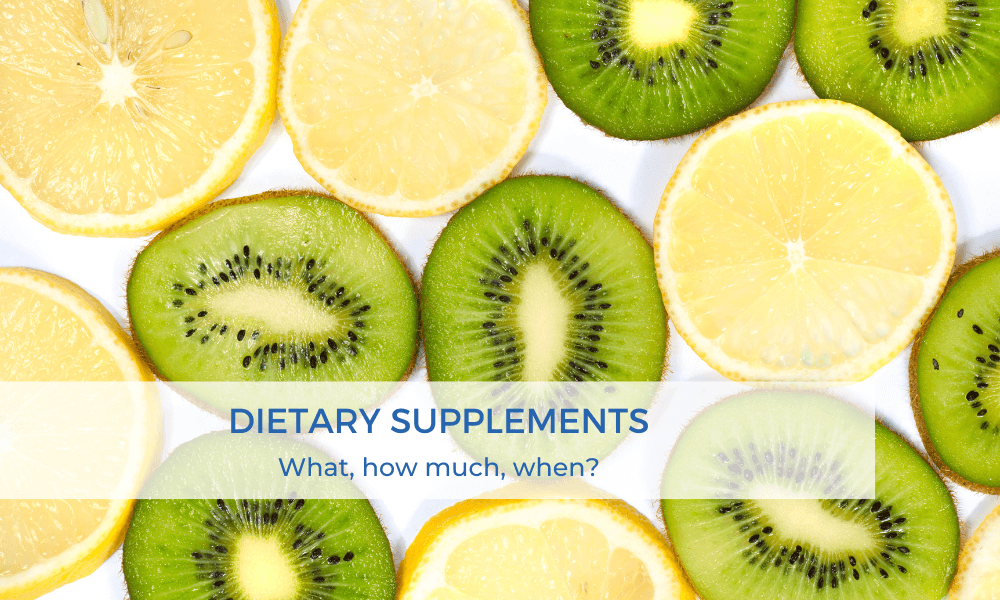
DIETARY SUPPLEMENTS – WHY TAKE THEM? WHAT, WHEN, AND HOW MUCH?
Dietary supplements are not a new concept; surely, you’ve taken some yourself or heard from your friends about the various supplements they use to meet their body’s needs. But when is it recommended to use dietary supplements, what should you pay attention to, how much should you take, and which are the most important supplements? In this article, we help answer these questions. But before we get into that, let’s clarify what exactly a vitamin is.
VITAMINS
It’s important to know that the word “vitamin” means a substance necessary for life. Specifically, vitamins are organic compounds essential for metabolic processes in cells and are involved in regulating biochemical processes through which food is utilized in the body and converted into energy.
Vitamins can be categorized into several groups. We know that the body can produce vitamins D and K, but the others must be obtained through diet or supplements. If even one vital vitamin, mineral, or trace element is missing from our body or is present in insufficient amounts, a deficiency state can develop, impairing physiological processes. This can lead to symptoms and, eventually, deficiency diseases.
WHY DO WE NEED Vitamins?
One might wonder why we even need to consume vitamins and other dietary supplements. Even today, it is often heard, sometimes from trained doctors, that taking dietary supplements is generally unnecessary, as a balanced, varied diet provides all the necessary vitamins, minerals, and trace elements in adequate amounts. However, this view is not necessarily the norm.
QUALITY OF FOOD...
…is not what it used to be decades ago. The soil itself suffers from various deficiencies, and plants grown in such soil cannot be nutritionally complete. Agriculture uses a lot of chemicals (e.g., herbicides) that have harmful effects on our bodies. Moreover, the quality of water and air has significantly deteriorated over recent times, being anything but clean. Thus, the environment in which plants grow and the conditions of production have worsened and are unfortunately not harmless to health. Can vegetables and fruits that grow in contaminated soil, are watered with polluted water, and are surrounded by polluted air provide proper nutrients for us?
MODERN LIFESTYLE...
…is different for people today. Constantly under stress, juggling endless tasks, overwhelmed with duties, rushing between work and home. All this happens in polluted air and alongside contaminated water sources, much like our plants. Additionally, it is common today to breathe incorrectly, superficially, eat irregularly—only snacking to curb hunger between tasks without proper energy or nutrition. We live in a fast life, fast food world, which is anything but healthy. We exercise little, and spend too much time sitting in front of screens in unhealthy positions. Often, we resort to stimulants; alcohol, cigarettes, or other substances are almost daily companions to help us relax. What can be said about our biorhythm? We go to bed late, have trouble falling asleep, and wake up tired.

TODAY, THERE IS A PILL FOR EVERYTHING.
We take sleeping pills for insomnia, painkillers for headaches due to fatigue, and caffeine to survive the day. However, medication usually only suppresses symptoms without addressing the underlying issue. Meanwhile, we often introduce synthetic, foreign substances into our bodies. Not to mention the side effects of these medications.
Our environment is filled with devices emitting health-damaging electromagnetic radiation. TVs are gradually disappearing from households, replaced by larger screens, laptops, computers, and smartphones that have become extensions of our limbs. Phones have become essential for data, communication, work, and even life itself, thanks to the rise of social media.
ALL THESE FACTORS...
…contribute to the increased formation of free radicals, leading to early health deterioration. Think about why there are so many “civilization diseases” today, with more and more people suffering from allergies or other conditions, including hair and scalp diseases. Let’s not forget that the pharmaceutical industry’s revenue grows proportionally. Pharmaceutical science is advancing, with more products available for virtually every symptom and illness, yet the number of illnesses continues to rise.
Modern people need far more vitamins, minerals, and trace elements than three generations ago. Realizing this, it becomes clear that alongside a healthy, plant-based diet, we also need dietary supplements. However, we must not neglect physical exercise and attention to our lifestyle. Our bodies require extra care and attention due to our general environmental and lifestyle circumstances.
WATER-SOLUBLE AND FAT-SOLUBLE VITAMINS
Vitamins can be classified into two groups based on whether they dissolve in water or fat. The unused portion of water-soluble vitamins is eliminated from the body a few hours after intake through urine, while fat-soluble vitamins are stored for a longer period. Therefore, higher doses of water-soluble vitamins can be taken as the excess is safely excreted through urine, but more caution is needed with fat-soluble vitamins. It is not advisable to take fat-soluble vitamins continuously for a long time, as they can accumulate and lead to overdose.
Fat-soluble vitamins: Vitamin A, D, E, F, K. All other vitamins are water-soluble, with one exception: Vitamin B12 remains in the body for a longer period.
NOT A SUBSTITUTE FOR MEDICATION
If we are taking medication prescribed by a doctor to treat an illness, dietary supplements do not replace them. Dietary supplements are primarily for maintaining our health and preventing diseases. Of course, they can expedite the healing process but primarily serve as complementary therapy. Additionally, it’s important not to take dietary supplements simultaneously, as they may reduce each other’s effectiveness or even cause unpleasant side effects. Wait at least one to one and a half hours between taking medication and dietary supplements.
WHAT NOT TO TAKE WITH WHAT?
It’s best to take dietary supplements during or after meals. At these times, digestion and absorption processes are more active, allowing the active ingredients to be better absorbed by our bodies. If we take a dietary supplement on an empty stomach, it quickly passes through the digestive system and is likely to be excreted from the body without being absorbed. An exception to this is ginseng, which, when taken on an empty stomach, enhances its stamina-boosting effects and is more effective than your usual morning coffee.
However, it is not advisable to take ginseng with vitamin C, as they diminish each other’s effects. The same goes for iron and vitamin E. However, there are vitamins and minerals that, when taken together, enhance each other’s effects. For example, vitamin E and selenium work synergistically.

DON'T CHEW THE dietary supplements
When taking dietary supplements, follow the instructions on the product. It’s important not to chew the dietary supplement but swallow it whole because if broken into pieces, they are easier to digest and absorb, and are quickly eliminated from the body. Do not break apart capsule supplements either. The capsule is usually there to protect the active ingredient from the corrosive effect of gastric acid and to prevent heartburn from the active ingredient.
HOW MUCH dietary supplement to TAKE
It’s difficult to give a clear answer to the question of how much dietary supplements we should take. There is a recommended daily dose, but this varies not only from country to country but also from person to person. For example, in countries like Hungary, the recommended amount of vitamin C is 60 mg per day, but its health effects are not significant.
Meanwhile, we know that smoking a single cigarette can destroy up to 100 mg of vitamin C in our bodies. As a guideline, read the dosage instructions, but it’s also important to inform yourself. Consult a knowledgeable doctor, naturopath, or dietitian about dietary supplements. You can also browse the internet but don’t rely solely on the information found there, as market factors can override actual useful data. However, one thing is certain: the risk of overdose is minimal with water-soluble vitamins, but more caution is needed with fat-soluble ones!
It’s important to ensure adequate intake of nutrients, vitamins, and minerals from within, but when it comes to caring for our skin or hair, external nourishment is equally important. With Oxygeni Hair oxygen therapy treatment, we ensure that vitamins and minerals are incorporated into the scalp at the cellular level; but during your haircare routine, nourishing your hair and scalp is also important. In the final step of a proper hair care routine, the supply of vitamins to the scalp takes center stage, which you can fully ensure with the Oxygeni Hair Vitamin Serum.
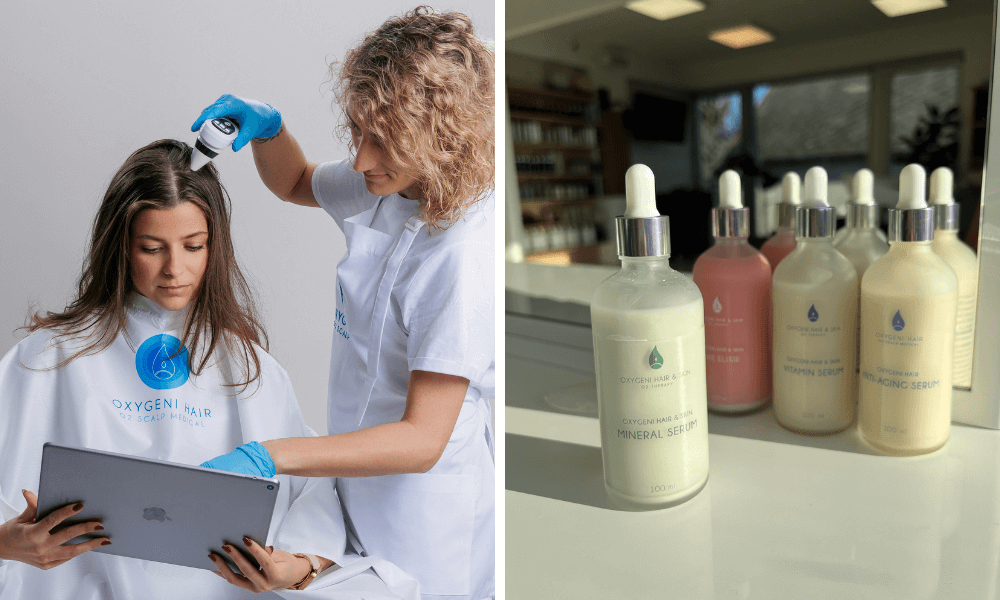
OXYGEN THERAPY AND OXYGENI HAIR PRODUCT REVIEWS
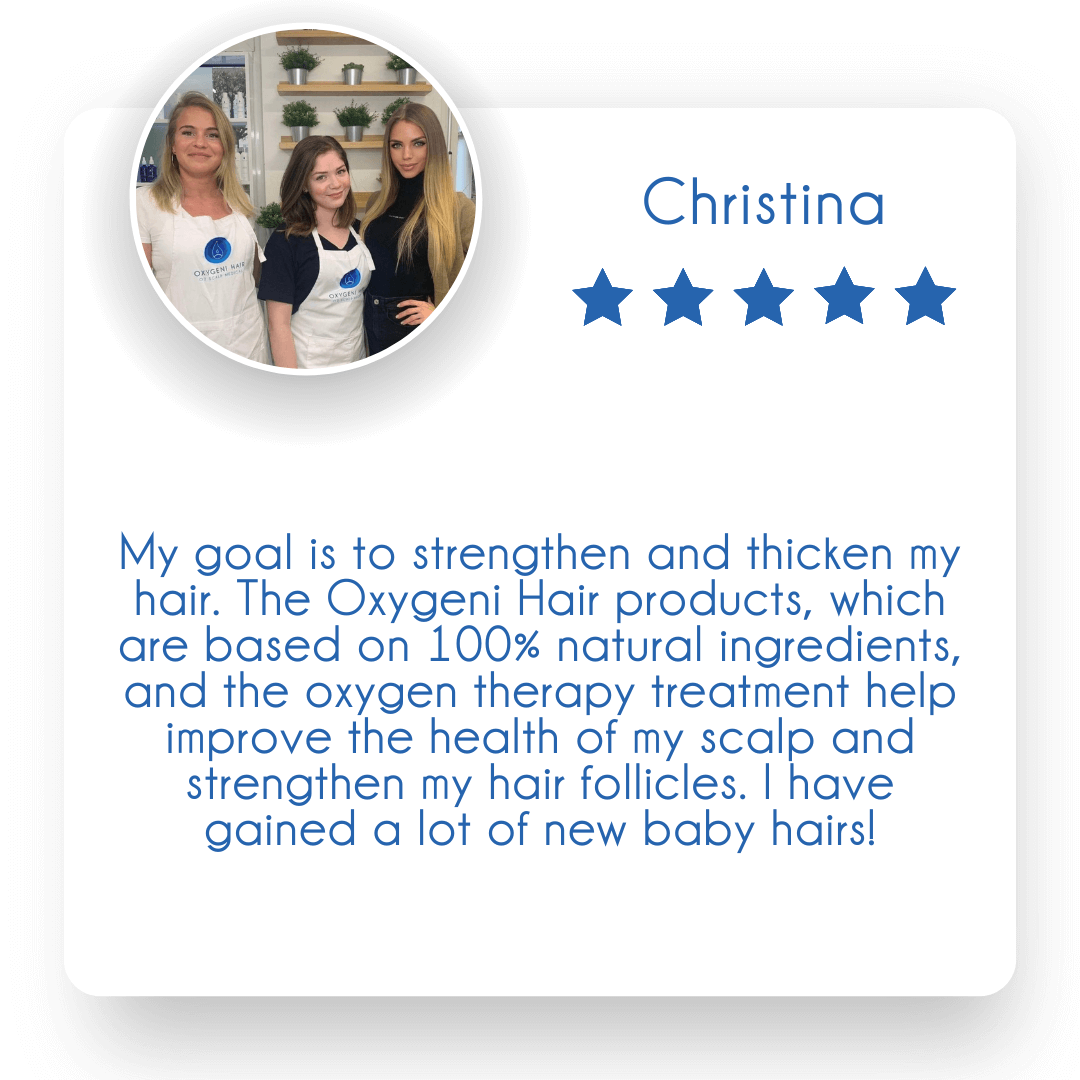



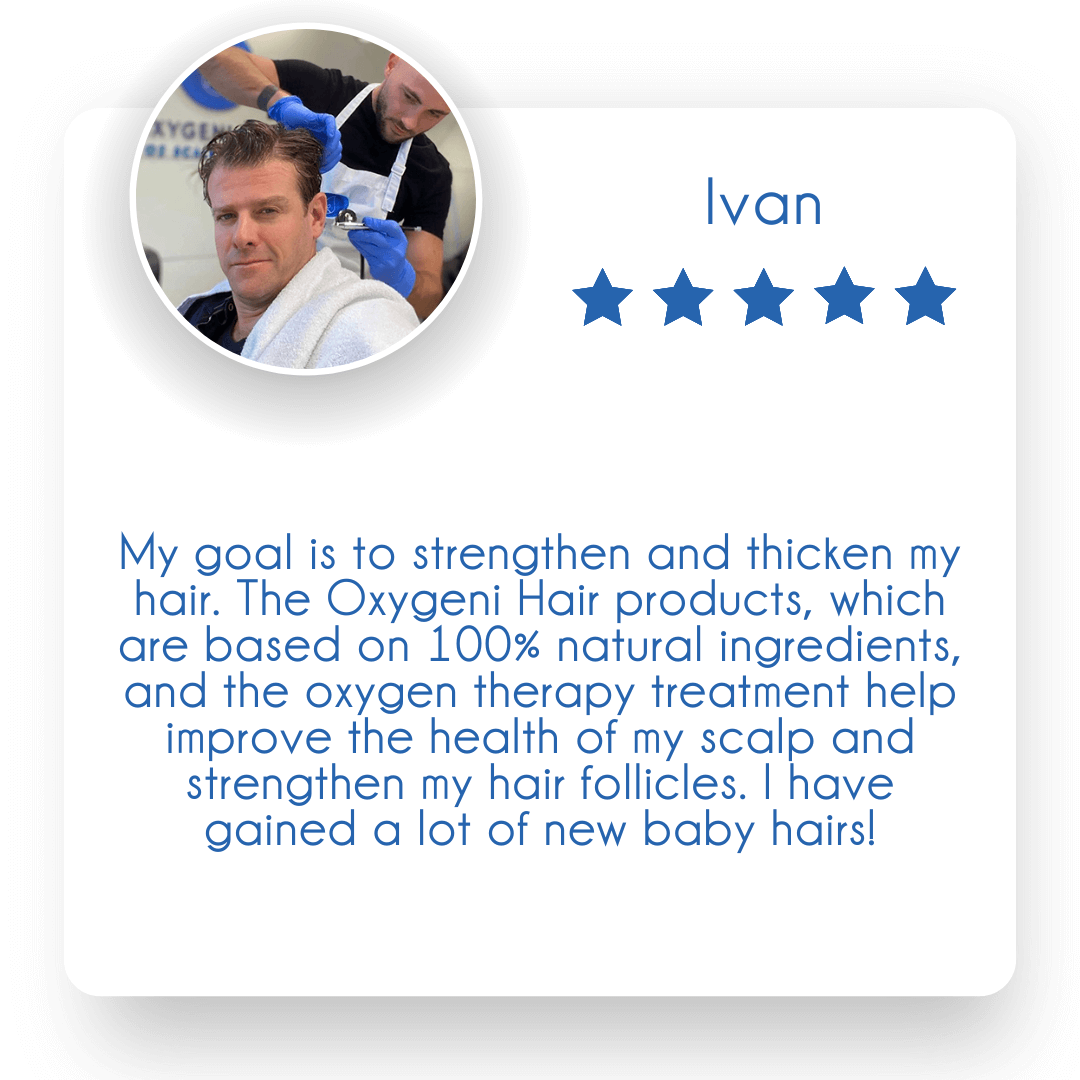
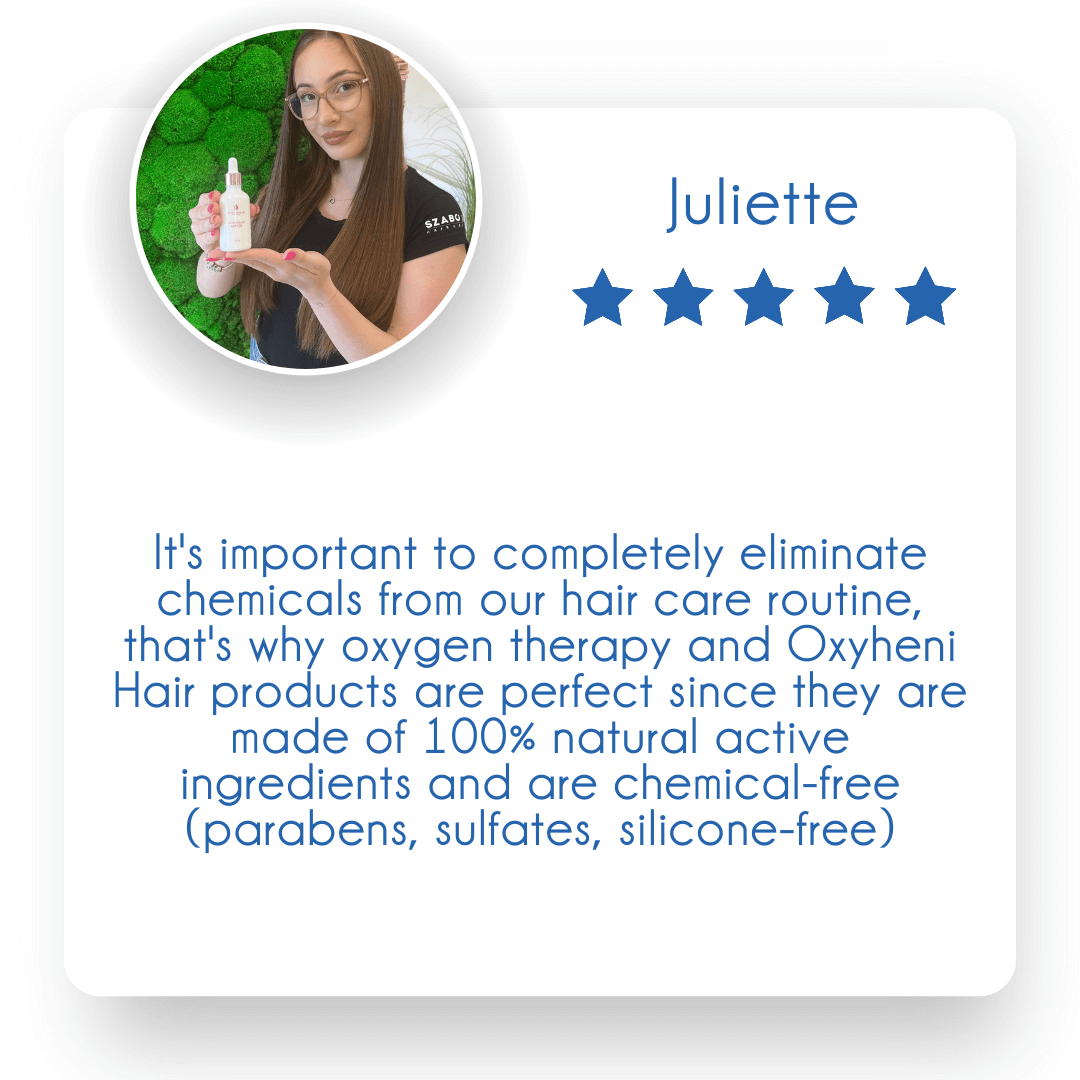
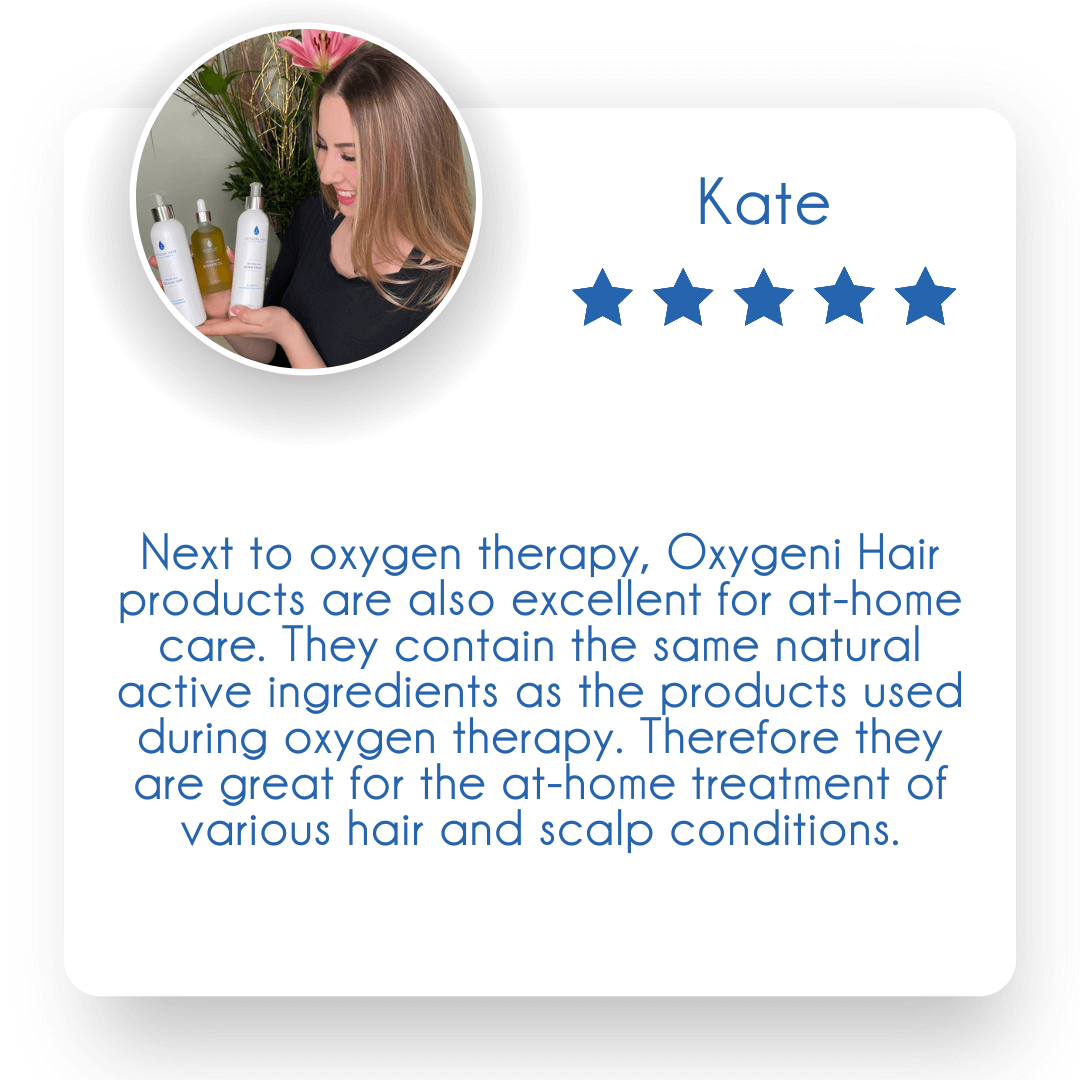
Follow us on our social media platforms!
